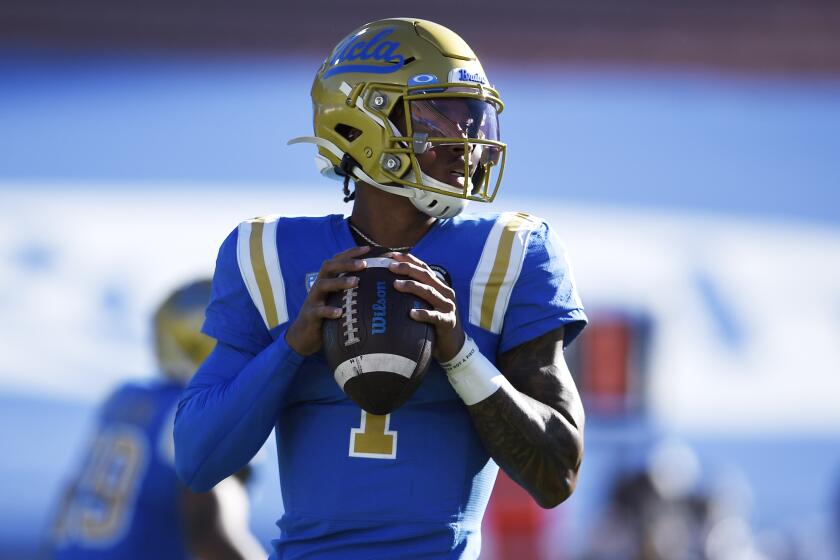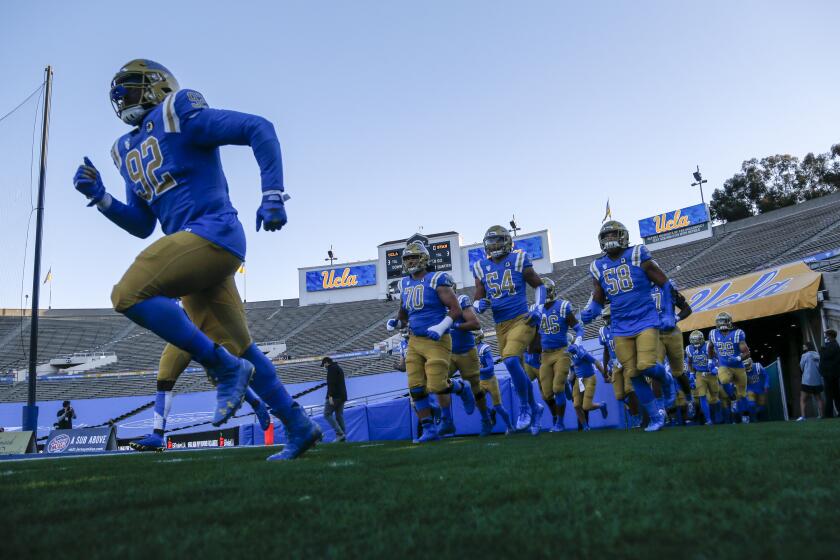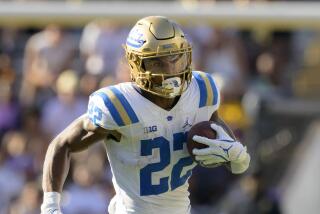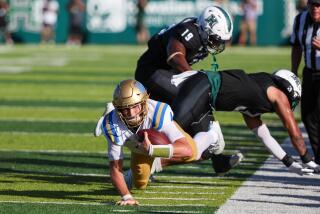UCLA faces a dual-threat in opener and hopes it added the right weapons to stop him
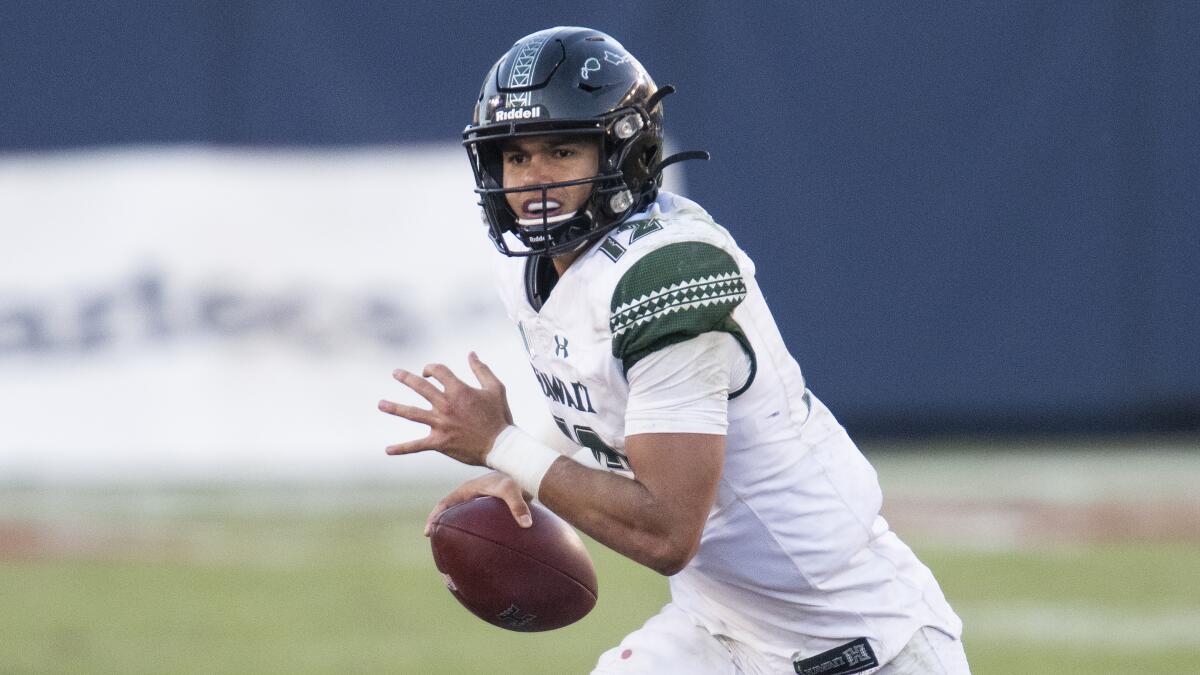
- Share via
It used to be a novelty. Now the dual-threat quarterback is as common in college football as recruiting trips. But that doesn’t make it easier to stop one.
Defenses often stress communication and discipline when preparing to face a running quarterback like Hawaii’s Chevan Cordeiro, who will challenge UCLA at the Rose Bowl on Saturday. The season-opening test comes for a defense trying to incorporate new players at key positions and hoping to shake off a disappointing end to last year.
After giving up late leads to USC and Stanford to end the season, coach Chip Kelly added starting-caliber linebackers through the transfer portal. Ale Kaho, a redshirt junior, is a former four-star prospect who was a special-teams stalwart for Alabama. Jordan Genmark Heath played in 39 straight games for Notre Dame.
After missing eight practices, UCLA quarterback Dorian Thompson-Robinson has returned to camp. He wouldn’t say why he was out.
Their extensive experience in successful programs has helped elevate the Bruins in meetings and practice.
“The thing that I admire the most about both of them is they’re coming in here and teaching us and explaining to us their tips that they’ve learned and we’re doing the same,” linebacker Kain Medrano said. “Just how close this whole entire room is, I admire that.”
Genmark Heath is a stickler for footwork, Medrano said. The graduate transfer is a candidate to start at middle linebacker alongside Caleb Johnson, who led the Bruins in tackles last year. The pairing could elevate a sore spot for the defense, which needed more speed. It’ll be especially important against Cordeiro.
The third-year quarterback led the Warriors to a bowl victory in coach Todd Graham’s first year while completing 62.3% of his passes for 2,083 yards, 14 touchdowns and six interceptions. Cordeiro added 483 yards on the ground and seven rushing touchdowns.
“It’s gonna take 11,” Kelly said Saturday, one week before the opener.

The Bruins have recent success against dual-threat quarterbacks. They limited Arizona State’s Jayden Daniels, who was the leading rusher among Pac-12 quarterbacks last year, to six rushing yards while sacking him five times.
UCLA led the Pac-12 in sacks with 3.29 per game, which ranked eighth in the country, and set the table for a resurgent rushing defense.
Three years after giving up the most yards per carry in school history, the Bruins ranked 30th nationally in rushing yards allowed (135.7) and allowed just 3.6 per rush. It was the lowest for a Bruins team since 2007 and better than a two-yard improvement from the 5.8 allowed in 2017.
But the passing defense was ranked 114th in the country. Under secondary coach Brian Norwood, the Bruins gave up 274.1 passing yards per game.
Pandemic restrictions complicated Norwood’s first year in Westwood. The former Navy assistant spent spring and fall teaching his scheme through Zoom. Because of limited practice time, he entered the season without any idea who his best tacklers were.
With so many returning veterans on the offense returning for UCLA, the Bruins are primed to break out as one of the elite offenses in the Pac-12.
An extra year, a full spring and typical fall training camp have taken some of the guesswork out of UCLA’s defense.
“A lot of the defensive backs are more familiar with Coach Norwood and our system and I think it’s going to help us,” cornerback Obi Eboh said. “And then also, just at the end of the day, sometimes you just gotta make a play.”
That finishing kick eluded the Bruins last year. They lost four games by a combined 15 points. At 3-2 entering the final two weeks of the season, the Bruins were in position to finish with their first winning record under Kelly. They blew an 18-point, third-quarter lead against USC, then spoiled a two-touchdown advantage with less than six minutes remaining against Stanford.
The offseason hasn’t erased memories from the losses.
“It’s like a chip on our shoulder that we got to carry around with us,” cornerback Mo Osling III said. “So we’re coming into the season hot.”
More to Read
Go beyond the scoreboard
Get the latest on L.A.'s teams in the daily Sports Report newsletter.
You may occasionally receive promotional content from the Los Angeles Times.

